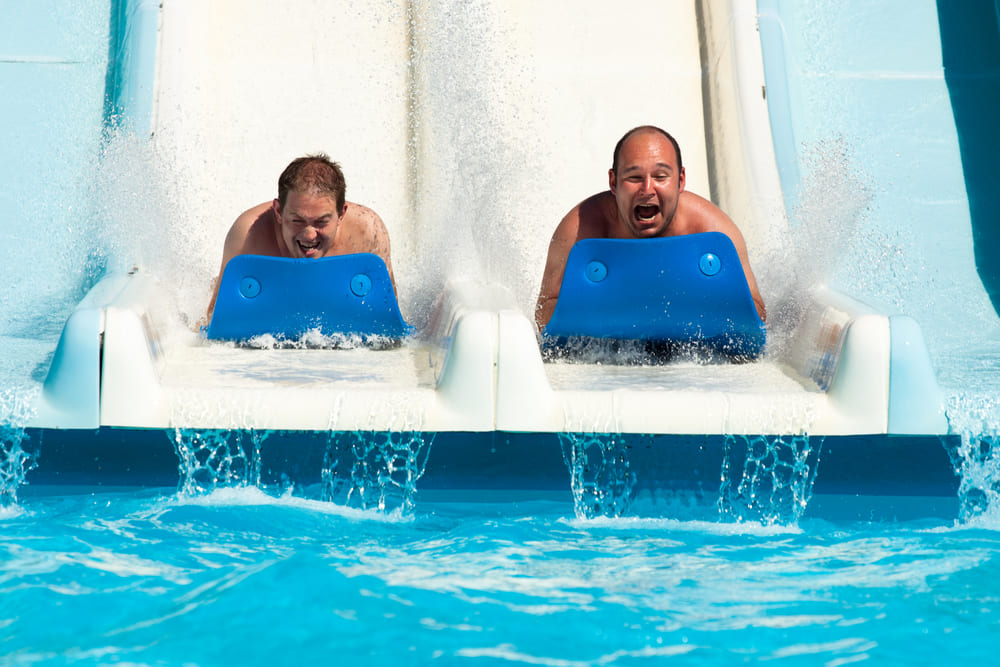Most businesses invest thousands in training programs, PowerPoint presentations, and conference room workshops to improve collaboration - yet wonder why their teams still struggle to work cohesively. The truth? Real teamwork skills are rarely learned from slides but more so forged through shared challenges and meaningful experiences.
With corporate retreats gaining momentum, destinations like Andamanda Phuket are revolutionizing team building Thailand experiences by combining skill development with unforgettable adventures.
With today’s hybrid work environment, strong collaboration capabilities separate high-performing teams from those merely going through the motions. Let's explore six core skills needed for teamwork with real-life teamwork skills examples that can transform groups of individuals into powerhouse teams.
The 6 Core Teamwork Skills

1. Clear Communication
Think about the last time a project went sideways because someone misunderstood the deadline.
What this looks like in practice: A good teamwork skills example is when a marketing team launching a campaign stops using vague terms like "ASAP" and starts specifying exact deadlines with "by 3 PM Thursday." Each team member confirms their understanding of deliverables. The result? Zero confusion and a smooth launch that meets client expectations.
Key components:
- Active listening techniques: Stop multitasking during meetings and actually hear what your teammate is saying.
- Expressing ideas effectively: Use clear, specific language instead of vague phrases like "soon" or "maybe".
- Non-verbal communication awareness: Notice when someone's body language shows confusion, even if they're nodding.
2. Trust Building
Remember that colleague who always delivers? That's trust in action. Without it, teams spend more energy covering themselves than actually collaborating.
What this looks like in practice: When someone accidentally deletes an important client file, instead of hiding the mistake, they immediately alert the team. Everyone jumps in to recover data from backups, and together they still meet the deadline. That honesty becomes the foundation for even stronger collaboration going forward.
Build trust through:
- Being reliable and accountable: If you say you'll finish the report by Tuesday, finish it by Tuesday.
- Showing vulnerability when appropriate: Say "I don't know" when you don't, and ask for help when you need it.
- Supporting team members: Cover for a teammate during their family emergency - they'll remember it.
3. Problem-Solving Together

Ever notice how the best solutions come from group conversations, not solo brainstorming?
What this looks like in practice: A restaurant struggling with slow service gathers the entire staff for input. The dishwasher suggests a simple plate-stacking system that cuts service time by 30%. The best ideas often come from the people closest to the problem, regardless of their title.
Essential approaches:
- Collaborative brainstorming methods: Create a "no bad ideas" space where everyone contributes freely
- Conflict resolution strategies: Address disagreements directly but respectfully - "I see your point about X, and I'm concerned about Y"
- Finding win-win solutions: Look for options that give everyone something they need
4. Adaptability
Plans change. Budgets shrink. Teammates leave. Flexible teams roll with it.
What this looks like in practice: When a major client suddenly changes project requirements two weeks before delivery, adaptable teams regroup quickly. They redistribute tasks based on new priorities, adjust timelines together, and maintain quality despite the compressed schedule. Instead of complaining about the change, they focus on solutions.
Focus on:
- Embracing change as a team: View unexpected shifts as adventures, not disasters.
- Flexibility in roles and responsibilities: The graphic designer helps with client calls when the account manager is swamped.
- Learning from failures together: After a failed product launch, debrief together and extract lessons, not blame.
5. Leadership & Followership
Here's a secret about teamwork skills: the best leaders know when to follow, and the best followers know when to step up.
What this looks like in practice: During a technical crisis, the junior team member with specific expertise in that system takes the lead while senior colleagues support their decisions and implement their recommendations. When the crisis is resolved, everyone's learned something valuable, and the junior member has gained confidence.
Master these dynamics:
- When to lead vs. when to follow: Lead in your areas of expertise; follow when others know better.
- Empowering others to take charge: Give teammates opportunities to run meetings or present to clients.
- Supporting team decisions: Even if you voted differently, commit fully once the team decides.
6. Creative Collaboration
Two heads really are better than one - when they work together instead of competing.
What this looks like in practice: An ideal teamwork skills example would be when an advertising team stuck on a campaign concept shifts their approach. Instead of shooting down incomplete ideas, they start building on each other's suggestions. One person's color scheme combines with another's tagline concept and someone else's layout idea. The final campaign includes contributions from five different people and becomes their most successful work.
Foster creativity through:
- Building on others' ideas: Say "yes, and..." instead of "no, but...".
- Encouraging diverse perspectives: The quietest person often has the most interesting insight.
- Innovation through teamwork: Combine your analytical thinking with your teammate's creative flair.
Teamwork Skills Examples: Real-World Application
These skills show up everywhere:
- Tech teams: Pair programming naturally builds communication and trust as developers work together on code.
- Healthcare: Emergency room staff rely on adaptability and clear communication during crises.
- Restaurants: Kitchen and front-of-house staff must problem-solve together during dinner rush.
- Retail: Sales teams balance leadership and followership to support peak shopping periods.
- Construction: Crews coordinate across different trades, requiring constant communication and flexibility.
Take Your Team Building to the Next Level

Traditional training programs teach these concepts theoretically, but experiential learning beats classroom instruction every time. Shared experiences, especially fun, challenging ones, forge bonds that PowerPoint presentations never will. When teams navigate obstacles together, communicate under pressure, and celebrate victories as one, they internalize collaboration skills organically.
Andamanda Phuket is one of the best and largest Thai-heritage themed waterparks in Thailand; consider it a team-building laboratory disguised as paradise in 100,000 square meters of thrilling fun. This world-class facility offers corporate groups the perfect environment to develop teamwork skills examples through adventure.
What makes it perfect for teams:
- Collaborative raft rides: Your team must communicate and coordinate to navigate together, just like at work, but way more fun.
- Wave pool challenges: Teaches adaptability as your group figures out strategies together.
- Interactive games: Build trust with fun, interactive games such as “Minefield” and “Egg Drop”.
- 550-meter lazy river: Thailand's longest, giving teams time to reflect and connect.
- RainFortress interactive features: 203 elements that require creative problem-solving as a group.
- Over 25 world-class water attractions: Activities that naturally encourage trust-building and supportive communication.
- Custom corporate packages: Designed specifically around your team's development goals.
Real results:
- Teams practice all six skills naturally through activities.
- The Andamanda App tracks progress in real-time, adding friendly competition.
- Professional facilitators help connect the fun to workplace applications.
- Everyone returns with shared memories (and inside jokes) that strengthen daily collaboration.
- Located in Phuket's stunning tropical setting, perfect for multi-day retreats.
Book Your Corporate Team-Building Adventure Today
In the fast-moving corporate world, another standard conference room workshop isn't going to cut it. Your team needs to actually practice these skills together in a setting where the stakes are fun, not stressful. Ready to try something different?
Book your corporate team-building experience at Andamanda Phuket:
- Visit: https://www.andamandaphuket.com/group-booking/team-building
- Contact our specialists to customize your package.
- Give your team an adventure they'll actually remember, and skills they'll actually use.
Because the best teams aren't built in meetings. They're built through shared experiences that matter.
References:
- Gowland, M. (2023, September 19). 10 teamwork skills everyone should have. Notion. Retrieved October 24, 2025, from https://www.notion.com/blog/teamwork-skills
- Keiling, H. (2025, October 2). 7 examples of important teamwork skills. Indeed. Retrieved October 24, 2025, from https://www.indeed.com/career-advice/career-development/teamwork-skills
- University of Waterloo, Centre for Teaching Excellence. (n.d.). Teamwork skills: Being an effective group member. Retrieved October 24, 2025, from https://uwaterloo.ca/centre-for-teaching-excellence/catalogs/tip-sheets/teamwork-skills-being-effective-group-member
Master 6 skills needed for teamwork including communication, trust-building, and adaptability. Plus, discover Thailand's best team-building destination.

